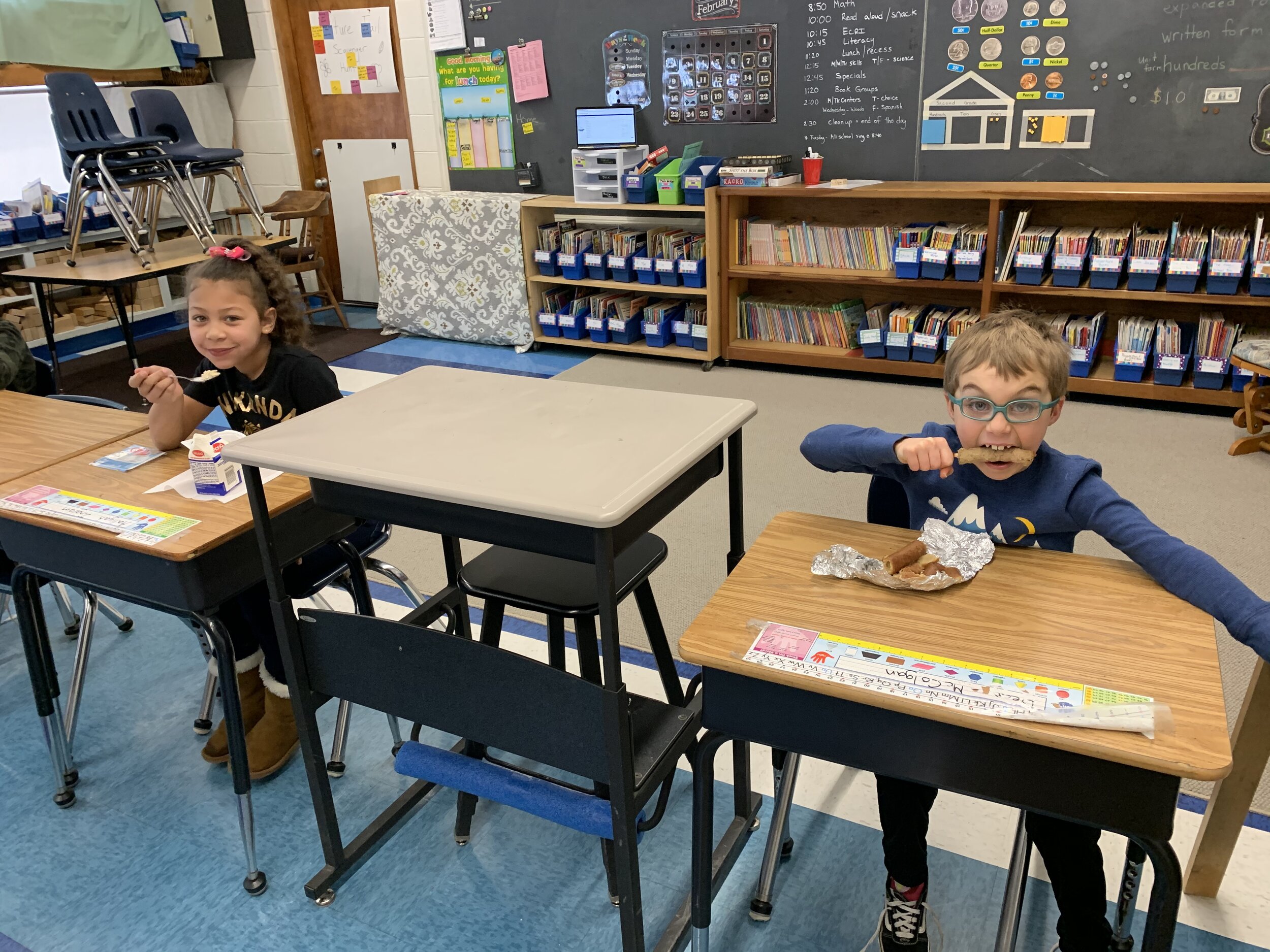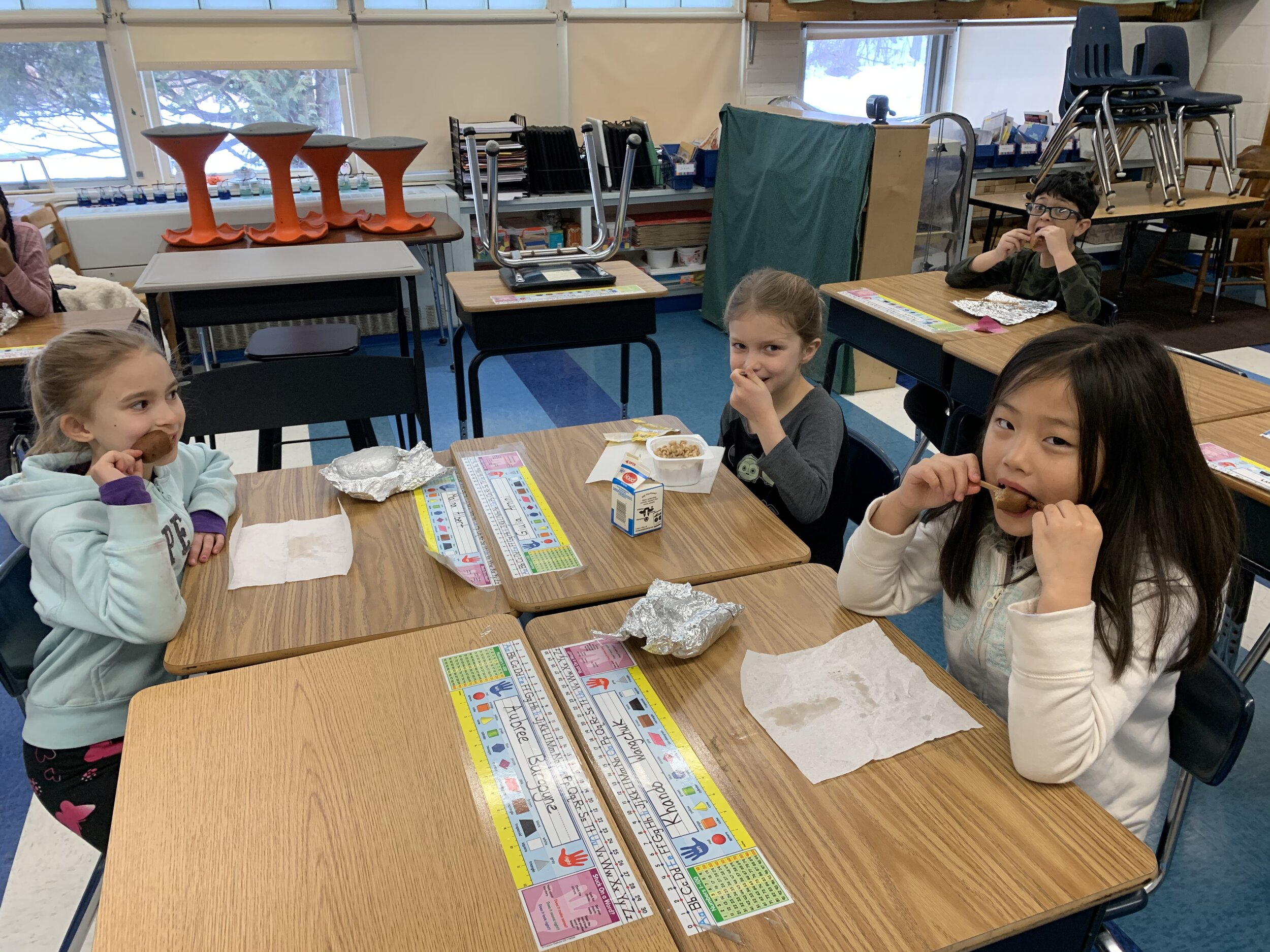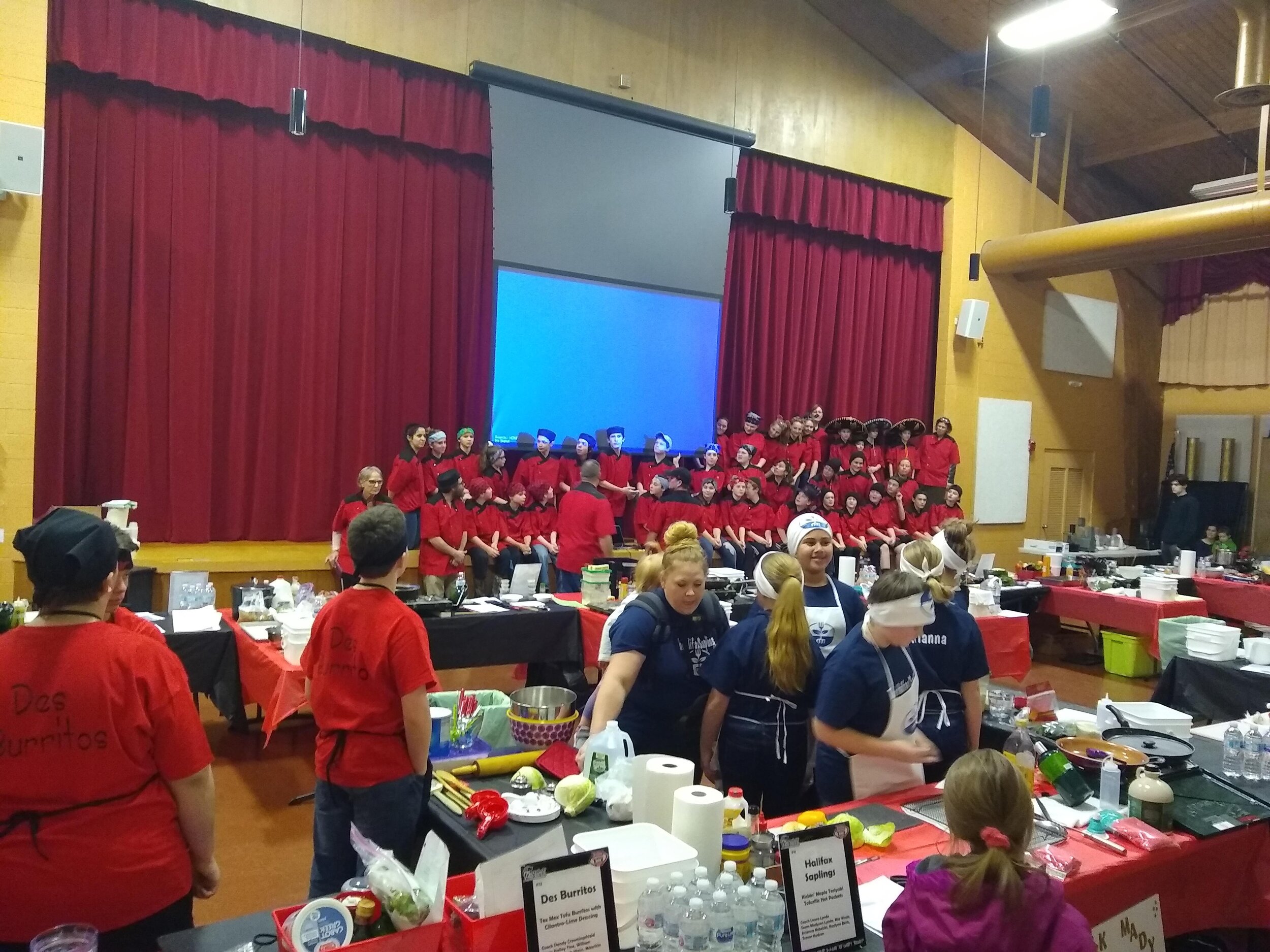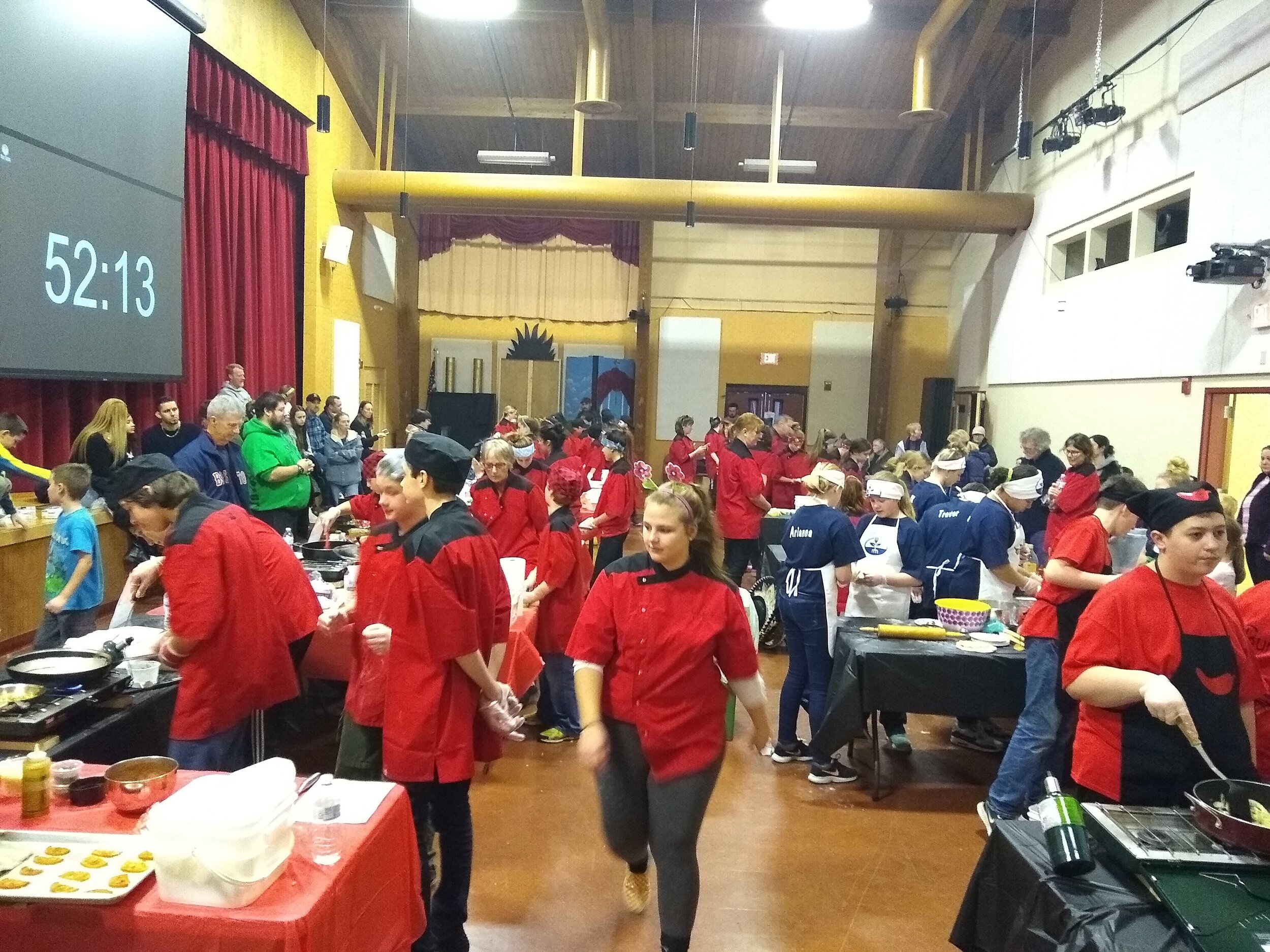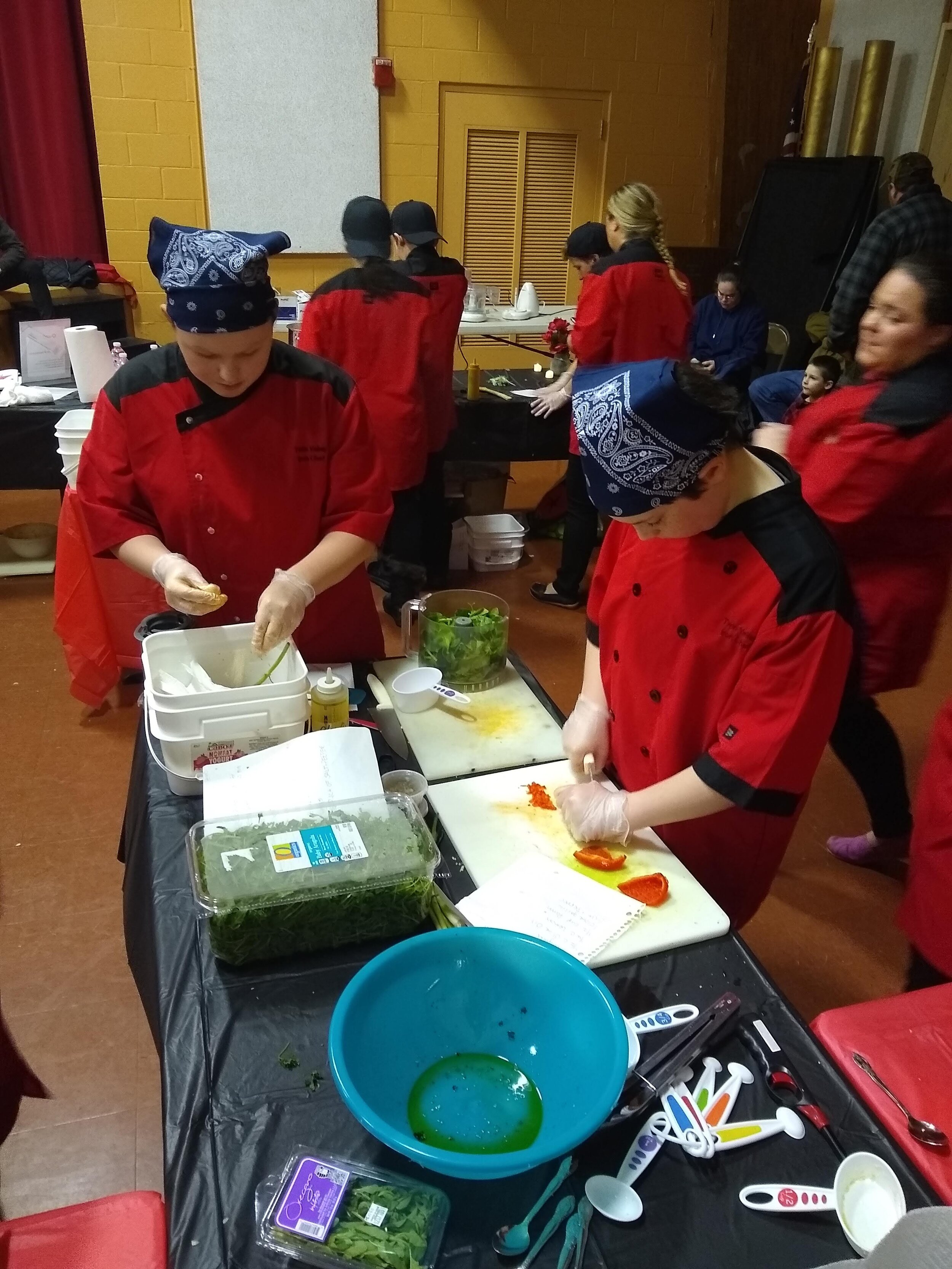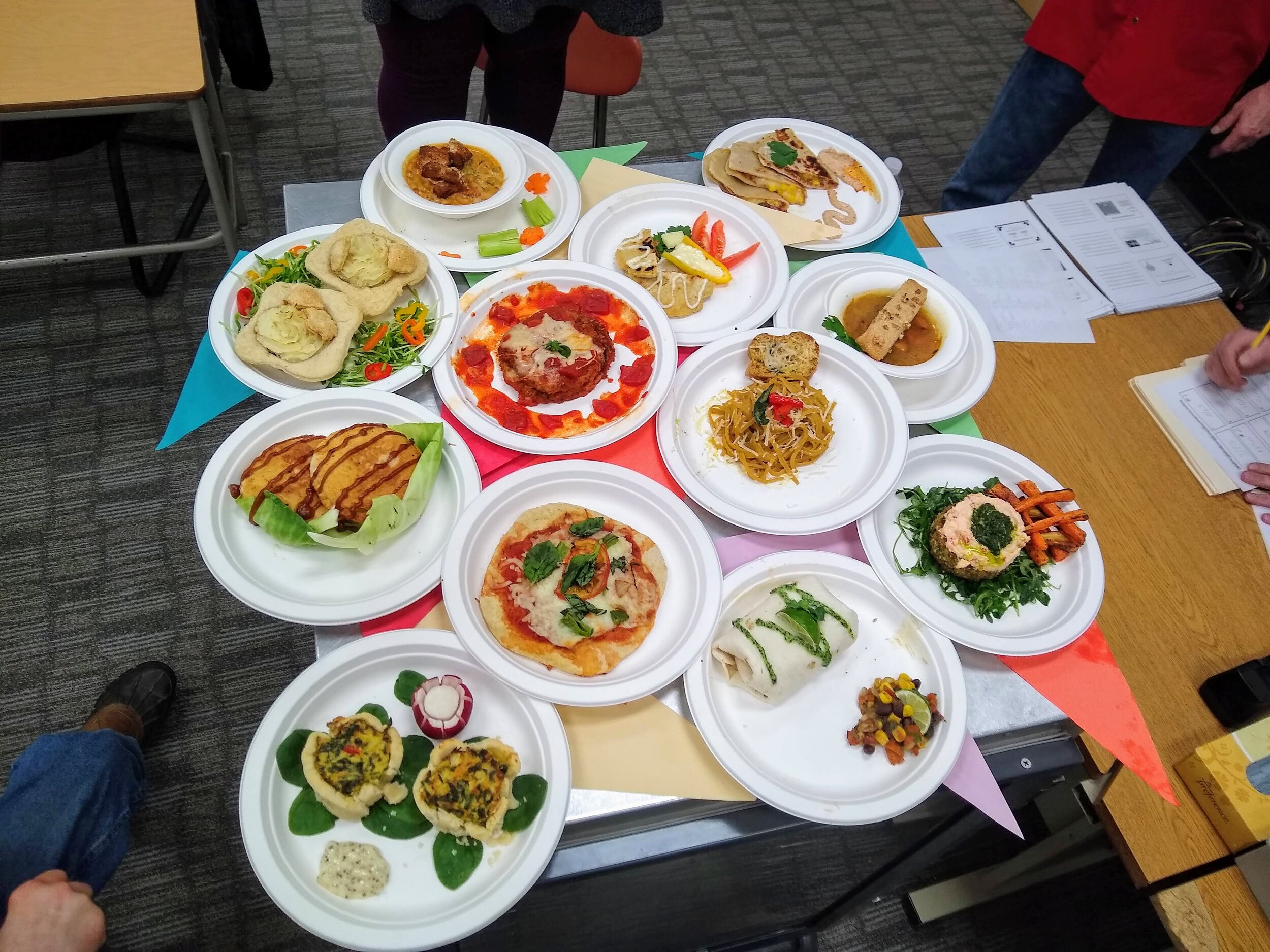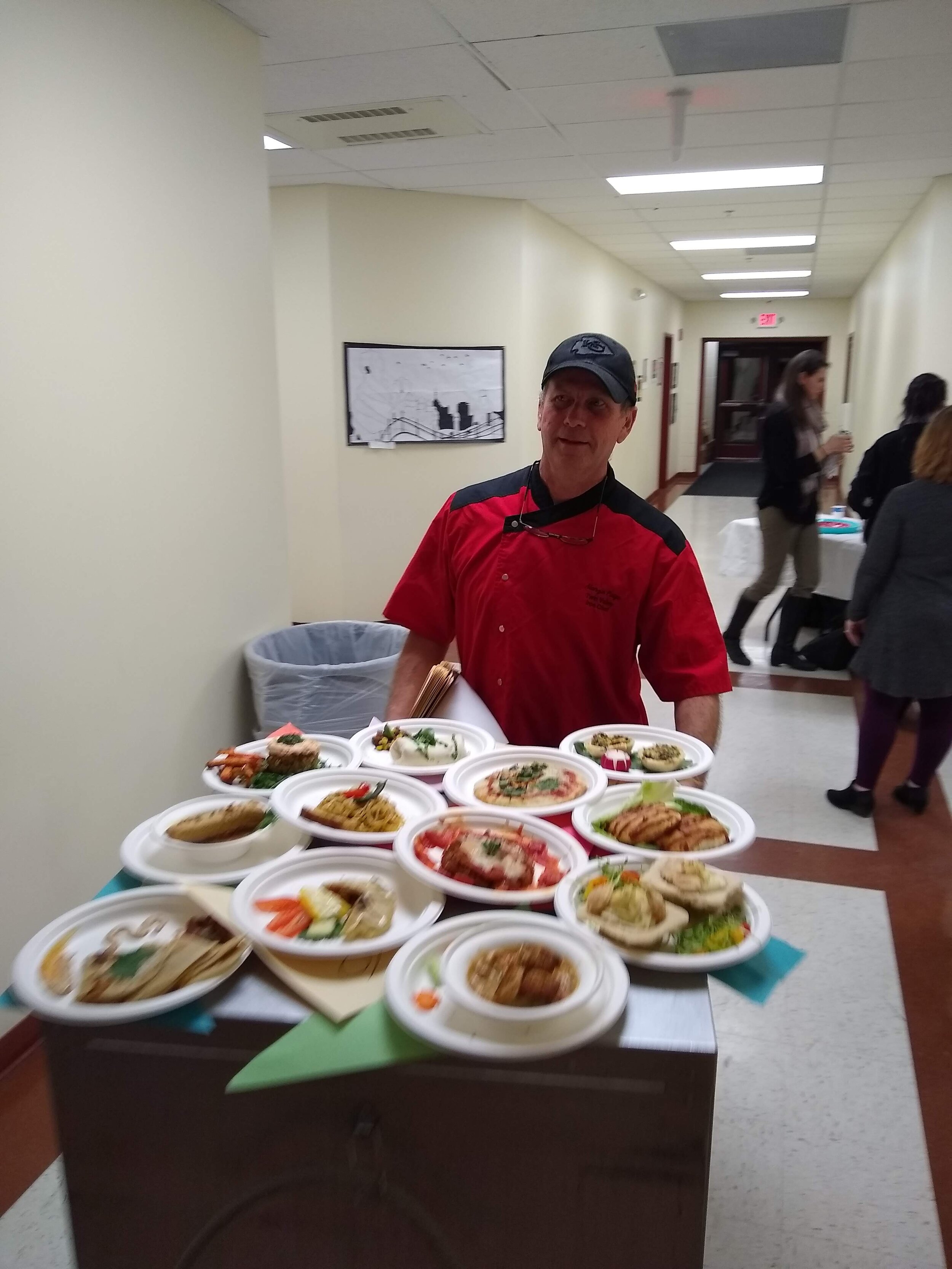Alison Kelly, Intensive Services teacher at Brattleboro Union High School & Brattleboro Area Middle School, volunteers in the Academy School Kitchen portioning out fresh grapes for student lunches.
When Food Service Directors Ali West and Justin McArdle of Fresh Picks Cafe received the call that schools in Windham Southeast Supervisory Union (WSESU) would be canceled due to COVID-19, they stepped into high gear, figuring out how to quickly get school meals out to students throughout the region who depend on those meals.
Initially, there were administrative hurdles to jump through in order to receive funding for these meals through federal and state funding sources. Kira Sawyer-Hartigan, WSESU’s Nutrition Programs and Wellness Consultant, assisted Ali and Justin with navigating these issues. Once they received the go-ahead from federal and state agencies, Ali and Justin rolled up their sleeves and got to work, doing what they do best—feeding children.
Ali, Justin, and staff from their own kitchens, as well as staff from Vernon, Guilford, and Dummerston now work together in two kitchens (Academy School and BUHS/BAMS) to make breakfast and lunch daily for nearly 1100 students in WSESU. School buses are used to help with distribution with teachers and paraeducators volunteering to ride along on the bus routes and hand out the food to families. This support from school staff is crucial—it brings a friendly, familiar face to these vulnerable families during this challenging time. BAMS/BUHS intensive services teacher Alison Kelly says that she has volunteered on the Vernon bus regularly as a way to stay connected with some of her students, and she has witnessed first hand the smiles on students' faces as they come to meet the bus each day to receive their food. Her students look forward to this friendly routine each day. Right now, the meals served are cold breakfast and lunch, 5 days a week, but as the new system grows and funds allow, Ali and Justin would like to add some hot meals to the menu, as well as dinner and food for the weekends.
A Glimpse at Academy School’s School Meal Operation
Ali starts each day in her kitchen at 5 am, checking the master list of students who are signed up for meals and making new additions to that list daily as more requests come in. She also works closely with Becca Kenyon, the dispatcher at Kuzmeskus bus company, to figure out how to reconfigure bus routes to accommodate new families who sign on to the meal program. Ali says she couldn’t do this work without Becca—Becca is so devoted to the project that she works some nights and weekends, driving around to figure out how to seamlessly fit in new stops to the routes so that all families can participate easily.
By 6:30 am, Ali’s crew arrives and starts to work. They assemble bag breakfasts together like a well-oiled machine. They had some practice with assembly-line meals prior to COVID-19—they were already preparing 300 bagged after school meals daily. Now, the existing systems are expanded to make everything work on a larger scale. There are no students in the building, allowing the staff to spread out rows of bags across several tables in the cafeteria, and this added space is crucial to the operation.
Ali says one challenge faced by her staff is having chronically dry hands from near-constant washing and sanitizing. She says her staff is very conscientious of all safety protocols including vigilant hand sanitation, wearing masks and gloves, and keeping 6-foot distance. Wearing masks is so natural now that every day someone forgets they are wearing a mask and tries to take a sip of coffee or a bite of lunch without first removing the mask, which can be messy! Luckily, they have plenty of colorful masks handmade by volunteers, and Ali jokingly says that wearing masks has the added benefit of stopping stress-eating at work!
Ali is challenged by product shortages of certain items like single-serve yogurt containers and individually packaged cheese sticks—which are in high demand by schools all across the country. Whenever possible, Ali tries to keep the menu consistent because she knows how a last-minute menu change can be challenging for students. Ali continues to face the ongoing hurdle of tight budgets for the meal program. Luckily, she was able to find a creative way to save 23 cents per bag by leaving out condiments and plastic utensils since students are eating these meals at home—freeing up resources to improve the quality of the food she serves.
By far, the coordination of all the moving pieces of this new feeding program is the biggest challenge for Ali—from managing staff and volunteers to figuring out correct quantities in order to minimize food waste. She likens the work that she has done creating new systems in uncharted territory as being an “air traffic controller with my eyes closed and working in a different language.” But, she is finding her stride and providing critical leadership to make the program run smoothly. A colleague recently expressed the need to wrap Ali up in a highly sanitized bubble to protect her from all illness, because the school district is relying heavily on her right now to keep the operation going.
Ali’s dedication to feeding our community runs in the family. Her mom runs the Guilford Food Pantry—which remains open during the pandemic and is offering curbside delivery with the help of Ali’s father, also working as a volunteer. Families write their orders on an order slip and Ali’s parents bring orders to volunteers working inside the pantry who pack boxes of food. Ali is concerned that her parents stay healthy, and so she donated oodles of pencils to the food pantry so that each person can keep the pencil they used to place the order.
A Glimpse at BUHS’s School Meal Operation
At Brattleboro Union High School, the staff transitioned quickly after Governor Scott ordered schools to close. “The very first thing we did was to sanitize everything,” said Justin McArdle, BUHS Food Service Director, “we’re pretty meticulous about cleanliness and sanitation regardless, but when we realized the magnitude of this thing, we ramped it up to 11.” After they did a deep clean, the team began thinking about what changes needed to happen. They tried adapting as much leftover food in the kitchens into deliverable meals and created a new menu that enabled easy distribution.
The biggest change was transitioning from primarily serving hot meals to entirely cold meals. “The process has changed significantly,” said Justin. “We’re now doing volume production, instead of making 18 pizzas a day and 200 sandwiches and a few batches of a hot meal, we have people prepping out 400 salads and 400 cups of yogurt, there’s an assembly line feel to it right now.” From a chef’s perspective, Justin would like to see more scratch cooking, but he sees the current set-up as the most effective way to serve the entire district—which is putting out over 2100 meals per day—during this time of need.
Justin also says that the entire staff has stepped up to the challenge. Like everyone else in the community, the staff are concerned about their health and the wellbeing of their families. But they still come in every day and have adapted to the change really well. “I really admire how they have managed to come in and grasp it so quickly,” Justin said during our interview.
There have been some hiccups along the way. Supply chain disruptions are still occurring. “Last week it was finding paper bags,” said Justin, “this week it’s been finding cheese sticks.” The entire staff has to be resourceful in finding alternatives when shortages occur. The community also pitched in. Recently, Food Connects put out the call for community members to lend their coolers to the program to help distribute the weight of all the meals being delivered. Within a couple of days, Justin had the ten coolers he needed.
When asked how the community can help now, Justin said that more families could sign up for school meals and help spread the word to their neighbors and friends. The program is free to all children 18 years and younger. The district asks that families fill out a short survey to help the program better predict the number of meals they need to make. More information about the program can be found on their website.










